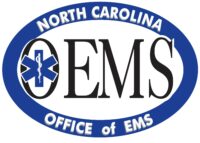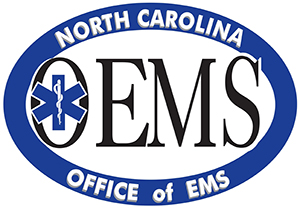Frequently Asked Questions (FAQs) have developed for four areas within EMS: Compliance; Education; Logistics; and System.
Compliance FAQ’s
The North Carolina Office of Emergency Medical Services compliance unit is responsible for the credentialing of EMS professionals across North Carolina. Individuals seeking credentialing through legal recognition or testing will be handled through the compliance unit. The compliance unit also handles all criminal record checks, and disciplinary actions and aids field staff in the investigation process.
Continuum FAQ’s
Continuum is a database used by the NC Office of EMS to monitor and provide credentials to EMS personnel, ambulances, and EMS agencies.
Credentialing FAQ’s
The Credentialing Section is responsible for background checks, finger print processing and instructing EMS Professionals on how to print their credentials.
Education FAQ’s
The North Carolina Office of Emergency Medical Services education unit is responsible for the development and oversight of North Carolina EMS education criteria related to all EMS courses, EMS education guidelines, EMS educational institutions, credentialed EMS instructors and state credentialing examinations. The EMS education unit works with various EMS shareholders and stakeholders to ensure the educational needs of the EMS community are being addressed.
Logistics FAQ’s
Logistics with the Office of EMS has the primary responsibility for tracking and conducting all vehicle inspections as well as data entry of associated information into Continuum. Additionally, the Logistics assists within other program areas to include: Systems, Compliance, Education, EMS for Children, and Hospital Preparedness as required.
SYSTEM FAQ’s
The North Carolina Office of Emergency Medical Services designates “System Specialists” who are responsible for providing review, evaluation and technical support in a variety of areas including: initial EMS agency provider license and alternative practice setting inquiries, applications and approvals; modifications and renewals for existing EMS systems and licensed EMS agencies; data quality and performance improvement consultation and drug-assisted intubation program feedback. The system specialists also work with the State Medical Director to ensure medical oversight compliance within each EMS system, including review and approval of policies, procedures, and protocols.

